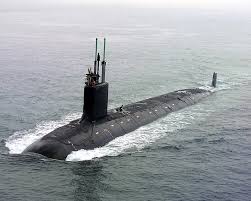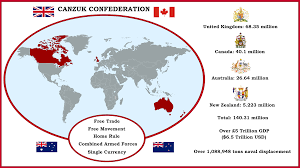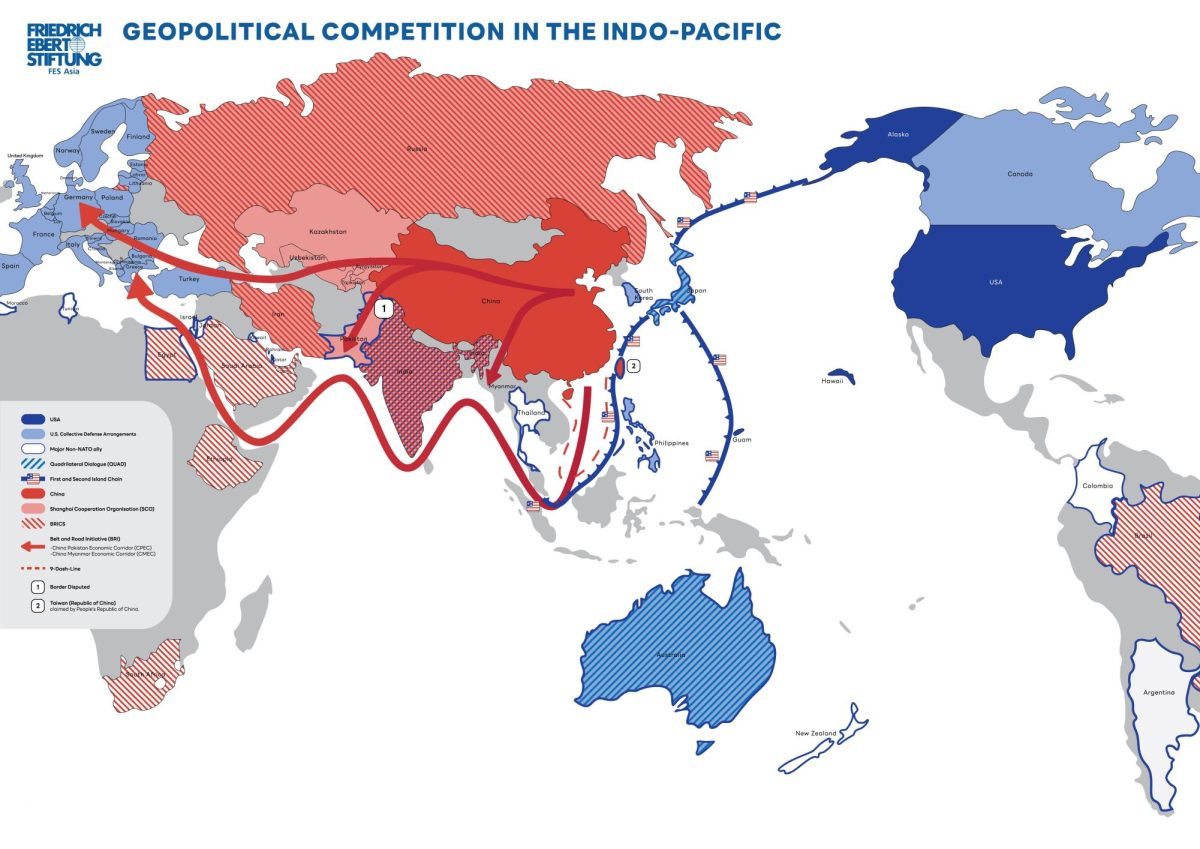It is safe to say that things are uncertain in the current geopolitical climate. With the baseline of US global dominance shaken by the Trump administration, the continued heightening of tensions in Europe, and all of this underscored by the constant rising threat of China. This has left much of the western world scrambling, from NATO finding new leadership, Canada in a standoff with the US, and most of all (as well as the topic of this article) Australia left in question. It is important to ask ourselves: given the current state of the world, what should Australia do now?
Before we answer this question however, first we must ask ourselves how we got to this point, and why America is so important to our defense. Well, this goes back to the Second World War.
During the war, Australia was isolated and ostracized from its normal defense framework, due to Britain being locked in battle with Germany and Italy defending its own isles and North Africa from attack. This meant that, when Japan struck south into British possessions in conjunction with its attack on Pearl Harbour, little support was available in the Pacific and Asian theaters. In addition, what little there was and did arrive was either in Burma or Singapore; the first was a volatile and open front, and when the latter fell, almost all of the forces there were captured. This left Australia an under-industrialized, sparsely-populated nation, newly alone from its so-called overlord, and left for dead to fight off one of the most tenacious and elite militaries on Earth.
In the absence of Britain, however, another nation was there to support the Aussies: the United States. They were in a perfect spot, with more equipment than they knew what to do with, and in need of a staging base to strike back at the Japanese. So the Aussies got tons of equipment (although it was quite aged) to defend the country. This was not all sunshine and rainbows: the relationship was strained due to General MacArthur and his superiority complex, as well as many times where the US refused to provide necessary equipment or support.
Despite its initial issues, the partnership continued and went all through the Cold War, during which Australia was a stronghold and fortification for all activity in the Pacific and Southern Asian theaters where the West intended to stop the Reds. For example, Australia sent men to Vietnam and Korea during those wars, and was used as a counterbalance to China (although not by itself). Post-Cold-War, this made Australia one of the biggest, if not the biggest, non-NATO U.S. ally in the world. That relationship, however, has also been under stress for a long time: right now, the relationship between Australia and the US is at its weakest state in decades. What has happened to make this relationship so uneven and in question.

Perhaps the first example of this is the Wikileaks scandal. This case is incredibly convoluted, but I will try to keep this short and simple. During the war in Afghanistan, the USA wasn’t exactly known for its nice treatment of civilians. Multiple counts of improper engagement with Afghan civilians resulted in innocent men, women and children being shot at, bombed, and treated horribly. However, whistleblowers that wished to come forward about these injustices would face court martial by the US army and government facing prison time if they told anyone. Because of this, a few members of the American military and diplomatic infrastructure turned to the magical world of the internet to leak government secrets. This was done on a website called Wikileaks, created and run by an Australian known as Julian Assange (see left). When hundreds of thousands of documents were released on the site, he became a rather big target, starting a continuous battle over who got custody of him that lasted 15 years. For the sake of brevity, I will try and hit only the main points. He hid out in the Ecuadorian embassy, was detained and kept in prison for 84 months in Britain and finally tried in the US controlled Northern Marianas before release to Australia: in other words, he was detained by the US, a country of which he was neither a resident nor a citizen. Understandably this has been a bit of a sore point in diplomacy. For Australia, the detention of one of their citizens, causing him to seek refugee and be on the run or in the justice system for 15 years, is a quite obvious point of anger, since it is their citizen who was being forced into hiding for having the gall to reveal war crimes. The United States, meanwhile, was mad, well . . . mostly due to him revealing said war crimes. This tanked the United States in the press and caused people to question interventionist policy in the Middle East. It also must be noted that this chase for Assange lasted over both Democratic and Republican administrations—meaning, while some may be better, both were willing to turn a blind eye to alliance when it was convenient for them.
Second would have to be the instability of the alliance due to the shifting political climate in the US having a large impact on policy towards Australia and other US allies. For example the current (at time of writing) situation with tariffs have caused a great deal of resentment towards the US. You see, the two nations have had free trade deals for decades, but the current administration has placed a 10% tariff on all Australian goods as well as 25% on aluminium and steel, which are important exports for Australia. The justification for this is that the US has trade deficits with various nations and these tariffs were placed on all countries, not just Australia.
Unfortunately, the facts remain that we had a trade surplus with them, had a free trade agreement, and imported a lot of American goods, including those of the defense sector having a near-monopoly on our markets. Why a tariff should be placed on us at all is frankly idiotic, and only serves to drive the Aussies away. Again and again, we have seen many right-wing, more America-centric governments generally give Australia a very unequal deal. (This does not let the left off either, however, as we will reveal in a moment.) Regardless, it breaks the idea of alliance and mutual respect of nations when one partner puts tariffs on the other. This inconsistency, of being our best ally and knight in shining armour to then moving to doing the geopolitical equivalent of whacking us with a wooden stick, makes the US an unreliable ally: we cannot count on the consistency of allyship that can change depending on how the winds blow for the next four years. It is unreasonable to say that we will be able to keep a pact of stability, respect and mutual trust if both sides are not committed to its upkeep.
The third (and, for our purposes, last) example here is the AUKUS pact. AUKUS (acronym meaning Australia, United Kingdom, United States) is a trilateral security pact between those three nations. It is based on two pillars: 1) give Australia access to nuclear-powered submarines and 2) we will all defend each other in the Indo-Pacific region, as well as a more unspoken pillar of mutuality. This was supposed to be the peak of Australian and US relations, working to give them one of the best and advanced technologies possible to secure a fortress against China on the Pacific stage and then work out how to counter them. Even the first part of this deal has led to a feeling of betrayal by the Americans, due to the unsubstantiated promises made by their government.

See, those nuclear subs were due to arrive around 2025, but now the Americans have gotten cold feet. Now, they say we will not be receiving these subs until at least 2030, as they need them. Let me make this simple: they are taking our subs, that we are paying for, and are now asking for more money to rebuild their shipbuilding industry without promising any submarines. Instead, now the idea is being floated that all of this money is to pay for these subs to be in American control and piloted by American crews . . . but stationed in Australia to deter China. This is, to be frank, bloody ridiculous. The fact that we are paying billions of dollars only to be denied even the confirmation of submarines—and then, to add to it, we were mocked by US Secretary of Defense [Ed. Note—and noted group chat enthusiast] Pete Hegseth about it with the words “the check cleared”—is a mockery of a so-called alliance, if one side is so obviously demeaning and destructive in its negligence towards the other. If we are to be continuously demeaned and belittled while being given no protection of substance, then what is the good in this alliance. When we have the US denying security guarantees in Europe, how can we be sure they will come to our side when they can’t even sell us weapons to defend ourselves, which is exactly what they whinge that they want us to do.
These and many other examples just goes to highlight that the USA is not a dependable ally due to the instability of its politics, overlooking our sovereignty to get what they want, and inability to live up to their agreements. That leaves the question then: what do we do now? Well, there are a few options but all rely on one major thing: forging new partnerships and alliances with like-minded nations, as well as reinforcing our ability to defend ourselves, and it is good to mention that all of these can be done at the same time and could even be better in conjunction. First, on the topic of domestic strengthening, this means we need to have the ability to produce our own defence goods. Australia, despite being a modern and powerful nation, lacks the sheer population required to produce our own defence capabilities. One way to bypass this is purchasing the weapons, but this time from other nations with similar interests and ideals, like the EU and our Asian partners, such as South Korea and Japan. We must also make sure, however, that any capabilities to fuel these systems—and possibly even the systems themselves—can be produced in Australia.

For example, if we were to change our main rifle from the EF88, then we should be able to make whatever caliber bullet that fires, whether it be 5.56 or otherwise, in Australia. The same with artillery, auto cannons, or any other weapon. The main targets for this would have to be Japan and South Korea. Both of these have similar systems of democracy and a common enemy in China, which gives us all a real and vested interest in conferring with them as well, since their size does not allow for a power imbalance like we have seen with the United States. On top of this, however we should also be looking to another partnership that isn’t often brought up: CANZUK. This is a partnership between Canada, Australia, New Zealand, and the UK. All of these nations have been left out to dry by the US and have a common language and history that allows for uniformity. Discussing CANZUK is a whole different article, but just know that while it is overlooked, it has immense potential. This would give us access to a quadrilateral security agreement, and even if things don’t go that far, the ability to buy and develop weaponry with UK and Canadian contractors who are quite revolutionary in their fields.
Overall I would say that we must secure our ties with Japan and South Korea to counter China, strengthen CANZUK for weapons development and security in this new world, and finally keep in line with the EU to maintain a bastion of democracy and stability in the world and mutually support one another despite the great distance between us. In this new existence we are threatened, but if we strengthen our ties to these and other freedom-loving, reliable, and willing nations, we will be able to come out of this in an even better position than before, which may turn this momentary threat to our lasting advantage.
Works Cited:
- CANZUK International
- Julian Assange (Britannica)
- Trump casts doubt on willingness to defend Nato allies ‘if they don’t pay’ (Guardian)
- US political dysfunction a threat to world stability: report (Washington Diplomat)
- When It Comes to Submarines, Australia Is Going to Be Left High and Dry (War on the Rocks)
